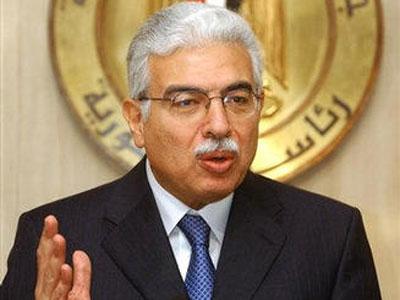 In their behaviour and personal demeanour, we expect public figures—especially those in leading positions—to act as role models. We demand a standard we can look up to and learn from. This is why their public and family lifestyles are important.
In their behaviour and personal demeanour, we expect public figures—especially those in leading positions—to act as role models. We demand a standard we can look up to and learn from. This is why their public and family lifestyles are important. Last month Magdy Radi, the prime minister’s spokesman, announced the marriage of Prime Minister Ahmed Nazif to the deputy head of the Information Technology Industry Development Agency (ITIDA) Zeinab Zaki.
The news stunned Egyptians; it is not every day that an official gets married while in office but, far more conspicuous, it is almost the first time in Egypt that an official makes a public announcement concerning a purely personal matter.
Couldn’t care less
The announcement, if not the news itself, aroused controversy. Some nodded in approval, but many believed that issues like these should be personal, and that Egyptians had much more on their hands, including poverty and corruption, than a man’s decision to marry even if that man happens to be the prime minister.
“I was definitely astonished when I heard the news because we are not used in Egypt to hearing details of officials’ personal lives,” said Mohamed Mohsen al-Masri, an accountant for an oil company. “Announcing the marriage of the 57-year-old prime minister was quite attention-grabbing, but I think that answering public concerns and revealing officials’ personal finances and their sources are much more important than airing their private affairs.”
“I am definitely not interested in Nazif’s personal life”, said Gamal Gohar, an employee at a governmental organisation. Gohar hoped that Nazif would rather announce intentions, plans and programmes to improve employees’ conditions and incomes. “I couldn’t care less if Nazif was interested in women or even had illicit affairs like the Italian Prime Minister Silvio Berlusconi. What is more important for me and for all Egyptians is to see an improvement in daily life regardless of the prime minister’s personal life.”
Victor George, a computer programmer, took a different view, agreeing completely with Nazif’s step, if not for anything but to avoid unnecessary gossip and rumours that might affect his reputation and that of others. “I think what happened is the best action in such situations, and I just hope that this transparency continues to spill over into all aspects of government, not only what’s personal and relatively irrelevant”
Personal finances
Salah Eissa, the editor-in-chief of the State-owned weekly al-Qahira, said announcements about the personal lives of political figures were not unprecedented in Egypt. Both presidents Gamal Abdel-Nasser and Anwar al-Sadat made public announcements of the marriage of their children, who had got married while their fathers were in office. Gamal Mubarak’s marriage was reported in most of the press. “But I wonder why in the case of Nazif a cabinet spokesman had to announce the news, while in the previous instances it was officials who published the news,” Eissa asked. He thought the only reason for this could be to allay suspicion and gossip.
Why, however, do officials not publish their personal finances and property, while most persons in public office have to present a detailed report of their finances before taking over their new job and the government continually monitors their holdings as long as they are in office?
MP Alaa’ Eddin Abdel-Moneim says there is a deficiency in the Egyptian Constitution that never included special terms for ministers to account for themselves.
“Each member of the public has the right to know about officials’ lives, even if there is no law enforcing officials to make their personal affairs public,” says Ahmed Mekki, vice-president at the Court of Cassation. “Such a right should not include only their personal lives, but rather the public ones.”




